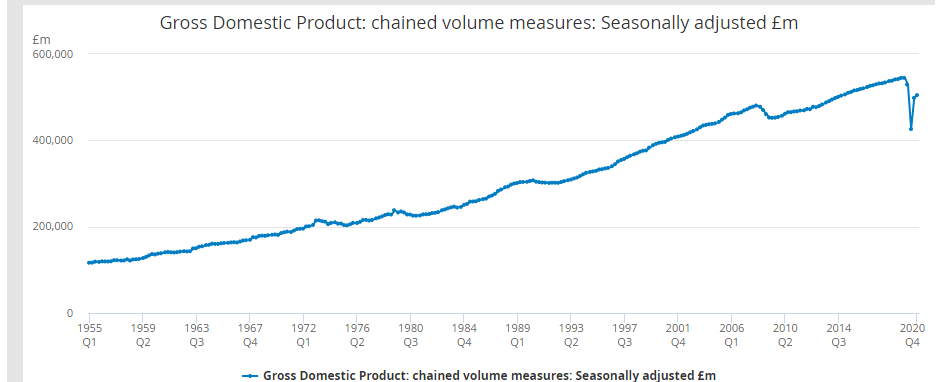This is an interesting claim because as Jes Staley (the ceo) probably does not know, he's an American, in 1948 Britain had a left wing Labour government and a social democratic concensus that was a million miles away from today's neocon economic wasteland. In subsequent years it was called Butskellism.
Of course, he's not completely bonkers, just slightly touched. The economy is likely to grow in 2021/22, if only to recover some, perhaps all, of the ground it has lost during the pandemic. It might even recover the growth that should have happened if it had not been for the lockdown. You can not shovel money on the economy in the way that UK Chancellor Rishi Sunak has done (and Joe Biden is emulating in America), without creating some growth.
But this kind of expansion is a dangerous game. If you keep throwing money around eventually you create inflation. Right now that's not such a bad thing since the Bank of England went for years without meeting its inflation target (a little bit of inflation is good for the economy, so they say). But there comes a point when if you keep shovelling money, inflation gets out of hand. Knowing when to stop is about as difficult as it is for an alcoholic to give up the booze or a smoker to quit fags. It can be done but it's tough.
Meanwhile if people are going on a shopping spree, they may find it difficult to find shops to spree in. According to the British Retail Consortium one in seven British shops is now empty, partly thanks to the lockdown. Rules preventing landlords from evicting commercial tenants are likely to end soon and business rates relief in England, another emergency Covid 19 relaxation, finish this summer. So things could get worse, or more barren, on the high street. https://www.bbc.co.uk/news/business-56940141

Source:ONS
UK gross domestic product (GDP) is estimated to have increased by a record 16% in July to September, 2020. Though this reflects some recovery of activity following the record contraction in April to June, 2020, the level of GDP in the UK is still 8.6% below where it was at the end of 2019.